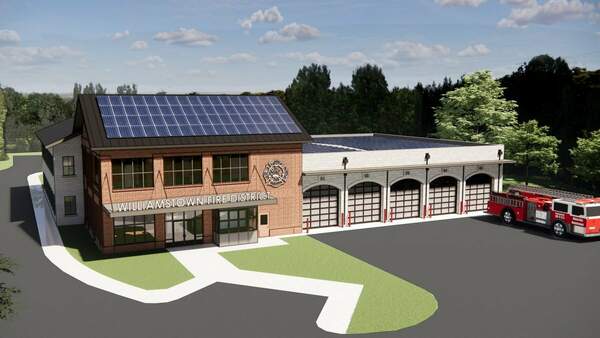Williams Awards Tenure to Five Professors
 |
WILLIAMSTOWN, Mass. — Following the recommendation of the Committee on Appointments and Promotions, the Williams College Board of Trustees Executive Committee has voted to promote five faculty to the position of associate professor with tenure.
The vote will be ratified by the full board in January, and the promotions will take effect July 1, 2015, for Quamrul Ashraf, economics; Mea Cook, geosciences; Justin Crowe, political science; David Gürçay-Morris, theatre; and Nate Kornell, psychology.
Quamrul Ashraf, economics: Ashraf’s research focuses on topics in long-run economic growth and development, economic demography, and agent-based computational macroeconomics. His work has been funded by the National Science Foundation and the Hellman Fellows Program, and his articles have been published (or are forthcoming) in various journals, including the American Economic Review, the Review of Economics and Statistics, the NBER Macroeconomics Annual, and the Population and Development Review.
He teaches courses on macroeconomics and economic growth and development, both in the economics department and in the master’s program at the Center for Development Economics. He serves on the Honor and Discipline Committee and as technology coordinator for the economics department. He has held visiting positions at Harvard’s Kennedy School and its Center for International Development. He earned his B.A. from Trinity College and his Ph.D. from Brown University.
Mea Cook, geosciences: Cook earned her B.A. from Princeton University and her Ph.D. from the Massachusetts Institute of Technology/Woods Hole Oceanographic Institution Joint Program in Oceanography. She teaches courses on oceanography and climate change and serves on the Faculty Steering Committee and the advisory committee to the Environmental Studies Program.
Cook, a marine geologist and paleoceanographer, studies the ocean’s role in natural climate variability across timescales ranging from decades to hundreds of thousands of years, including natural fluxes of methane and carbon dioxide between the ocean and atmosphere and the role of ocean circulation in ice age cycles. Her work is funded by the National Science Foundation and been published in the journals Paleoceanography and Deep-Sea Research II.
Justin Crowe, political science: Crowe earned his B.A. at Williams and his Ph.D. at Princeton University. His research interests include the Supreme Court, constitutional law and theory, American political and constitutional development, American political thought and culture, and American political institutions. His book, Building the Judiciary: Law, Courts, and the Politics of Institutional Development, was published by Princeton University Press in 2012. He has published articles in Studies in American Political Development, The Journal of Politics, and Perspectives on Politics and is currently at work on projects involving the development of vice regulation in the Progressive Era and constitutional amendments as agents of political change.
Crowe teaches courses including Power, Politics, and Democracy in America; American Constitutionalism; Problems and Progress in American Democracy; and American Political Thought. He serves on the Faculty Compensation Committee.
David Gürçay-Morris, theater: Gürçay-Morris, a set designer and experimental theater artist, earned his B.A. at Williams and his M.F.A. in scenic design from the University of Washington, Seattle. His recent show with playwright/director Young Jean Lee, STRAIGHT WHITE MEN, was a Top 10 Show of 2014 in both the New York Times and Time Out, and his set for LEAR was nominated for a Henry Hewes Design Award in 2010. He received a Princess Grace Fellowship, had his designs included in the Prague Quadrennial, and is a two-time member of the HERE Artist Residency Program.
At Williams, Gürçay-Morris teaches an introductory course in theatrical staging and design as well as upper-level classes in scenic design, 20th-century scenography, and devised theater. He serves on the Faculty Review Panel and Winter Study Committee.
Nate Kornell, psychology: Kornell earned a B.A. at Reed College and a Ph.D. at Columbia University, and he completed a postdoctoral fellowship at UCLA. His research interests include efficiency in learning and how typical learners understand and manage their own learning. His work has been published in (or is forthcoming from) a variety of journals, including Annual Review of Psychology, Psychological Science, Journal of Experimental Psychology: General, and Psyconomic Bulletin & Review.
He teaches Introductory Psychology, Cognitive Psychology, Cognition and Education, and Perspectives on Psychological Issues. He serves on the Committee on Information Technology.
Tags: Williams College,

 WILLIAMSTOWN, Mass. — The Prudential Committee on Wednesday signed off on more than $1 million in cost cutting measures for the planned Main Street fire station.
WILLIAMSTOWN, Mass. — The Prudential Committee on Wednesday signed off on more than $1 million in cost cutting measures for the planned Main Street fire station.













